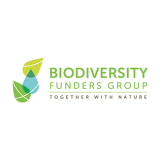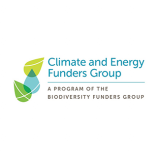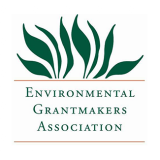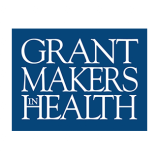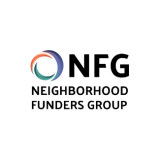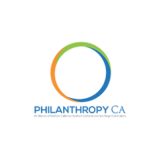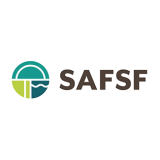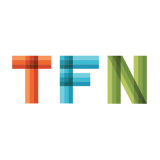This toolkit has been created to accelerate philanthropy at the intersection of climate change, health, and equity. The project is a collaborative effort by several philanthropy-serving organizations (PSOs) to serve funders’ varied interests, as well as to facilitate learning and collaboration across funder communities. Bolstering climate change-related giving that prioritizes needs of people and communities -- especially giving to those most impacted -- is at once an urgent necessity and a strategic opportunity to help all people survive and thrive.
PROJECT PARTNERS
Learn why and how the toolkit's sponsoring PSOs are supporting philanthropy related to climate change, health, and equity. Access PSO Partners' profiles by clicking on the logos below.
Acknowledgements
The sponsors gratefully acknowledge the support of the ClimateWorks Foundation, the Kresge Foundation and our other members and funding partners for their financial and leadership support.
HEFN’s toolkit development team included: Jeff Wise, HEFN Director of Strategic Programs; consultant Kathy Sessions, Principal, Leaven Partners; consultant Shalini Gupta, SGupta Consulting; and Matthew O’Malley, Grand Junction Design.
FAQs about the toolkit
What’s the background on the toolkit project? Several years ago, some national philanthropy-serving organizations (PSOs) identified a common interest in climate, health, and equity issues, as well as a shared commitment to advancing racial and other forms of equity. The group included the Biodiversity Funders Group (BFG) and its Climate and Energy Funders Group (CEFG); the Health and Environmental Funders Network (HEFN); the Environmental Grantmakers Association (EGA); the Funders Network (TFN); Grantmakers In Health (GIH), and the Sustainable Agriculture and Food Systems Funders (SAFSF).
Some partners began to offer joint programming, including a 2017 funder meeting on climate, health, and equity which surfaced active -- and quite diverse -- funder interests. In 2019, seven PSOs collaborated to survey grant makers and grant seekers about the state of work, needs, and opportunities related to climate, health, and equity, sharing results through a report and related programming. In 2020, HEFN led the partners in collaboration to launch this toolkit, with Philanthropy California joining as a sponsor. Partners are open to additional PSO partners joining thereafter.
How might other philanthropy-supporting organizations (PSOs) get involved? The toolkit partners welcome interest by other PSOs, including regional or population-focused members of the United Philanthropy Forum. For more information, contact jwise@hefn.org.
What are the goals of the toolkit project? Sponsors aim to support and accelerate philanthropy at the intersections of climate, health, and equity, particularly to expand investment in those most impacted by climate change. The toolkit is intended to make it easier for many funders to learn, engage, connect, and scale up, including:
-
Work to prepare for and mitigate harmful climate impacts, including on: vulnerable populations; rural, urban, and coastal communities; ecosystems, air and water quality; food systems and agriculture; health and healthcare; and the economy.
-
Impactful work of Black people, indigenous people, people of color, low-income people, and other populations in climate adaptation, mitigation, and resilience.
-
Critical contributions of health-impacted groups and the health sector to climate action and solutions.
Does the toolkit offer a comprehensive picture of all funding, nonprofits, and resources related to climate, health, and equity? Definitely not! The landscape of relevant work is large, diverse, and constantly generating new resources. This toolkit has been designed more as a first stop than a final destination. The idea is to help funders get started or get connected, with a focus on offering introductions, overviews, and connections to many “dots on the map,” starting with hubs of activity in various issue areas, regions, and populations. Even with that limited focus, the toolkit so far has captured only a part of the great work out there. Its 2021 launch brings online some initial offerings, with plans for updates, more content, and expanded functionalities. The project team invites other PSOs, foundations, and nonprofits to help improve this resource and its usefulness for the field.
How do I suggest additions, changes, or corrections? Please share suggestions or questions with the project team.
Who are the toolkit’s intended audiences? Toolkit sponsors have designed it for use by their own funder members and others in the philanthropic community, including foundations, donors, public funders, and other giving entities, with an initial focus on US-based philanthropy. Other expected and welcomed user audiences include grant-seekers and staff of other philanthropy-serving organizations doing relevant work.
How is information by issues, geographies, and populations organized? The toolkit uses a taxonomy drawn from the Environmental Grantmakers Association’s “Tracking the Field” database, an EGA/HEFN expanded taxonomy being used to track grants across those networks’ memberships, and (for “population” categories) on the Candid (formerly Foundation Center and GuideStar) Philanthropic Classification System taxonomy.
Where did images on this site come from? Toolkit sponsors, foundations, and nonprofits active in this area have shared some of the images for the site. Other image sources include US federal government agency photo galleries and social image-sharing platforms such as UnSplash. Captions under most images provide attribution information. Credits for images in the navigation blocks on landing pages include: American Public Health Association; City of Providence, RI; Environmental Health Coalition; Health and Environmental Funders Network; Lancet Countdown on Health and Climate Change; Medical Society Consortium on Climate and Health; Susan Melkisethian; and Geri Chapple, Giulia May, and Tim Roosjen on UnSplash.
